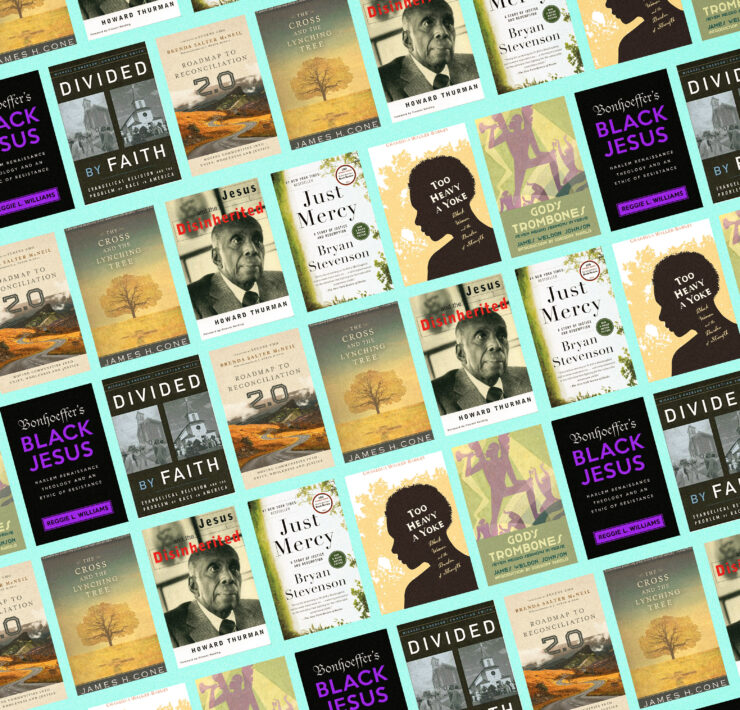Recently, I met with a couple who had been married for 20 years. A few weeks before we sat down together, the husband had broken off a nine-month affair that he had successfully kept secret from his wife. But when the other woman informed him that she was pregnant and that the child might be his, he decided to finally tell his wife what he had done.
When we met, the husband explained that he was going to get DNA testing to find out whether he was the father. If he wasn’t, he planned to stay with his wife and try to work things out. But if the child was his, he was going to leave his wife for the other woman.
We might as well have been on the set of an afternoon talk show, but the tears that were flowing made it clear there was nothing staged about this painful situation.
When I asked the two of them how they’d ended up in this spot, they both agreed that their marriage had been unhappy and contentious for many years.
“We’ve prayed over and over and over again that our marriage would turn around,” the wife said. “We’ve waited and waited, but it never happened.”
And that was the problem. They had waited and done nothing. I can’t help but wonder how things might have been different if, after praying that God would heal their marriage, they both had done the most loving thing they could think of for the other person at that moment. And then again the next day and the day after that.
Perhaps after several months or years of putting aside their own needs in favor of the other spouse, and after countless acts of sacrifice and love, they may have found that there was a relationship worth saving there.
Instead, they waited for the marriage they desired to be handed to them. And it wasn’t.
For them, it wasn’t desire and good intentions that were missing. It was grit. It was the relentless tenacity to run after what they said they wanted most. But instead, they just waited.
As much as I wish I could tell you that I can’t relate to that couple, the truth is that I can. My desires and good intentions have never been the problem.
I want to consistently lay down my own desires in favor of my wife.
I want to raise my kids in a way that gives them solid direction for their lives and sets the stage for a great relationship with them after they leave home.
I want to exercise self-control when I’m being drawn down a destructive road.
I want to be the kind of friend who serves others at the drop of a hat.
I want to honor people, not just in my actions but also in the way I think about them.
I want the life of Jesus.
But if I were completely honest with you, I’d have to say that sometimes I want all of this handed to me. My intentions are good, but good intentions alone will never lead us to the life we’ve been promised.
As Eugene Peterson writes in Run With the Horses: The Quest for Life at Its Best: “We don’t become whole persons by merely wanting to become whole, by consulting the right prophets, by reading the right book. Intentions must mature into commitments if we are to become persons with definition, with character, with substance.”
At some point, intentions must mature into commitments. Good intentions can get behind the wheel, but unless grit hits the gas, you’re not moving anywhere. Transformation comes on the other side of doing the hard work of going after the life you’ve been promised with unyielding grit.
Earning and Effort
With all this talk about grit, maybe you’re starting to wonder what ever happened to that other g word—grace. Isn’t following Jesus all about God’s undeserved favor?
The answer is yes—sort of. We are made right with God by 100 percent pure, unfiltered grace. Grace tells us there is nothing we can do to make ourselves any more loved and accepted by God than we already are. But this book isn’t about how we are made right with God. I’m talking about what happens after we’ve been made right with God through faith in Jesus Christ. I’m talking about how we grow. I’m talking about what it means to follow Jesus.
Coming home to God is easy because Jesus has already done all the heavy lifting on our behalf—and we can’t add to that. But growing in Christ, being transformed into His likeness, becoming who we were made to be, stepping into rich and full lives—well, that takes some grit.
Dallas Willard, in his book The Great Omission, says, “Grace is opposed to earning, not to effort. In fact, nothing inspires and enhances effort like the experience of grace. … Becoming Christ-like never occurs without intense and well- informed action on our part.”
Salvation is a pure, unadulterated gift—absolute grace.
And it is that same grace that compels us to get up, get in the game, and live differently in light of all we’ve been given—absolute grit.
When we try to earn God’s acceptance, our morality becomes the point, and duty becomes our motivation. We relate to God out of fear because we don’t want to upset the slave master.
We work and strive, trying to earn what is already ours to begin with. But grace says that we can’t earn any more of God’s love, nor can we lose an ounce of it because of anything we’ve done or ever will do. It’s grace. It’s a gift. It’s ours for the taking. Trust it and receive it.
Grace is always opposed to earning, but it’s not opposed to effort. In fact, grace makes demands. Grace calls out the best from us. Grace reorients everything we thought we knew about life. Grace confronts us in ways that may be uncomfortable.
God’s grace is a fighting kind of grace. It pokes and prods and confronts and pushes us toward the path that leads to a rich and satisfying life. Grace will not let us settle for mediocrity and small living. It compels us to change.
It’s tempting to think that because God is gracious and loving, he’ll just let everything slide, never holding us accountable for making tough choices or following through on them. But this picture of God as a doting grandfather is flawed—not just because it misrepresents mercy, but also because it completely misunderstands love. God’s love for us is far too relentless—far too gritty—to let us stay the way we are.
Heavy vs. Hard
In Matthew 11:28-30, Jesus makes a fascinating statement to anyone willing to follow Him:
Come to me, all of you who are weary and carry heavy burdens, and I will give you rest. Take my yoke upon you. Let me teach you, because I am humble and gentle at heart, and you will find rest for your souls. For my yoke is easy to bear, and the burden I give you is light.
Following Jesus isn’t burdensome. It isn’t a heavy load. His yoke is light and easy to bear because He bears the weight of it. The hoops we think we need to jump through in order to gain God’s favor have crumbled under an earthquake of grace.
We can rest.
But here’s the catch. The kind of rest that Jesus describes here is not a rest that comes from sitting back and doing nothing. It’s the kind of rest and peace that come from knowing that the life we’re pursuing is the only one that truly matters.
This is why, right in the middle of these promises from Jesus, we find a challenging invitation that we can’t afford to gloss over: “Let me teach you …”
In our willingness to open ourselves to everything Jesus wants to teach us and show us, we may need to bend and conform our will to His. That’s the hard part, and not everyone is willing to do it. In fact, there was a time when some people who were following Jesus responded to His instruction by saying, “This is a hard teaching. Who can accept it?” And “from this time many of His disciples turned back and no longer followed Him.”
If you’re a Christian, you didn’t sign up for the easy life. You signed up for the good life. And sometimes good demands something of us. Or as F. Scott Fitzgerald once said, “Nothing any good isn’t hard.”
Of course following the real Jesus is not going to be easy.
Why would we expect it to be? The greatest treasures in life are often the ones we work and sweat and bleed for.
If you make music, the songs you create have value to you because of all the work you put into them, not because of any monetary gain you might receive.
If you’re an athlete, the countless hours of sweat, blood and tears that you’ve invested in your sport are what make it valuable to you.
If you’re a parent, the home you’ve created has value because of the relentless love you’ve poured into the relationships formed in that space.
We inherently attach value to the things we’ve worked the hardest to accomplish. And on the other side of all that effort, perseverance and pain, we expect it all to be worth it.
By choosing to follow the real Jesus, you’ve chosen a path that will be difficult, demanding and trying at times. But you’ve chosen it with the belief and faith that in the end this way of life is both good and best. On the basis of that faith, you move forward, putting one obedient foot in front of the other.
After you’ve done that again and again and again, you’ll find yourself living in ways you never imagined you would, giving gifts you never thought you’d give, forgiving people who don’t deserve it and haven’t asked for it and becoming the person you never thought you’d become.
All because you stopped waiting and started moving.























